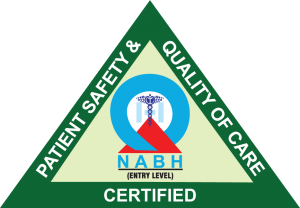BLOG – PREMENSTRUAL SYNDROME(PMS)
- Home
- Blog
- Premenstrual Syndrome(PMS
- Mar,1 2022
Premenstrual Syndrome(PMS)
PMS is used today in the common parlance. It refers to Premenstrual syndrome. As the name suggests, Premenstrual syndrome is a health issue that affects women of reproductive age. When a woman has PMS, it affects her quality of life. The symptoms occur before a woman gets her period. Although there may be physical symptoms, PMS mainly affects mood which inturn affects behaviour. It causes irritability which affects productivity, relationships and other social activities.
What are the symptoms of PMS?
PMS symptoms may vary among women. Symptoms occur two weeks prior to the periods and reduce after the period comes. Symptoms could be physical or otherwise. When PMS occurs it may cause irritability, anxiety, mood swings, depression, insomnia, forgetfulness etc. Headache, fatigue, breast tenderness, dizziness, weight gain etc. are some physical symptoms. PMS may cause sweet cravings, binge-eating, crying, poor concentration, noise-sensitivity etc.
Causes and risk factors for PMS
There is no proven definitive cause for PMS although there are some factors that are linked to it. Serotonin deficiency for instance is found in women who have PMS. Supplementing magnesium & calcium have shown improvements in emotional & physical symptoms. Women who have undergone abuse in early years have high risk of having PMS. Response to normal hormonal changes is more for some women making them prone to PMS.
Obesity and smoking are risk factors for PMS as much as it is for many other diseases and conditions. Anyone with a BMI of above 30 is considered obese putting them under risk for PMS.
Diagnosis for PMS
PMS is diagnosed after ruling out several other conditions since symptoms such as anxiety, depression, peri menopause etc overlap with that of PMS. Though there are no lab tests to confirm PMS, it can be diagnosed by closely monitoring the symptoms that occur before periods and subside after one or two days of periods.
Managing PMS
PMS can be managed through maintaining a healthy lifestyle consisting of healthy eating habits and physical exercise. A healthy diet consists of whole foods like fruits & vegetables, and whole grains. Reducing sugar & salt intake is good for health overall. Caffeine & alcohol have their effect on mood as well as health overall. Drinking enough water and having small frequent meals will help maintain blood sugar level which can help with the symptoms. Exercise helps in reducing fatigue and also helps in coping up with depression. Sleep is easily one of the most important factors affecting quality of life. Early to bed & early to rise is the best and consistency with sleeping habits is key to good health. Relaxation techniques such as yoga & meditation help premenstrual symptoms. Dietary supplements for calcium, magnesium etc may help with PMS symptoms.
PMS resolves upon menopause. Mild PMS can be managed with the above mentioned lifestyle changes but when severe it is best to consult your doctor.
For women health specialist appointments, reach out to us on 9840264444.
Visit us on www.sakthihospitals.com
Follow us on Facebook @sakthihospitals
Follow us on Instagram @sakthi_hospital

